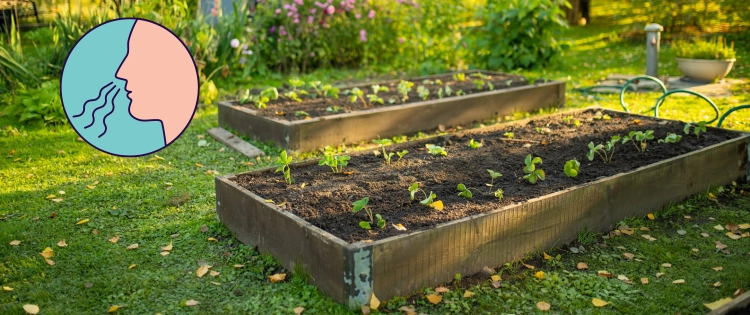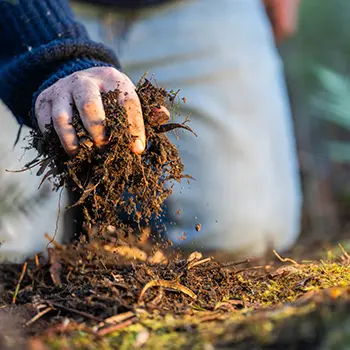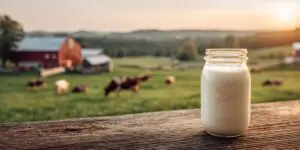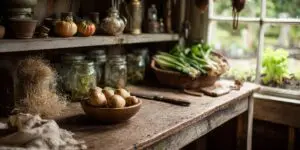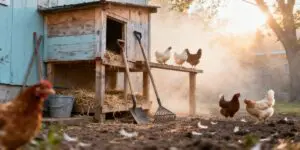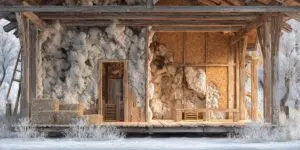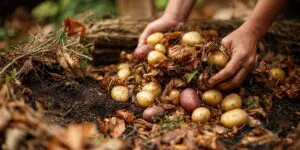All gardens are going to stink at some level. Whether you’re turned off by the smell of petrichor (what, really?) or you just happen to have a lot of standing water that’s leading to some serious issues, there will always be a scent that states you’re turning soil frequently and growing living things.
That’s part of the beauty of it, really. You have to learn to love the smells that come with it or, honestly, you should probably go back to a little windowsill garden. And guess what? You’ll still have a smell or two.
Today, we’re going to look at some serious smells. The kinds of scents that should have alarm bells blaring are what we’re here to focus on. Let’s get started.
Sulfur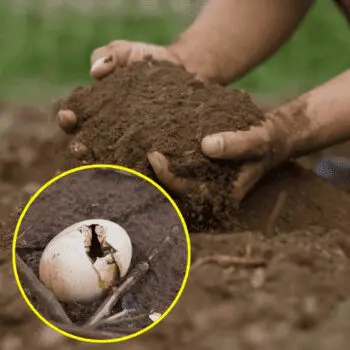
Under “sulfur” we’re counting things like rotten eggs and similar scents. The scent of sulfur or similar smells usually indicates that there is clogged soil that is retaining water at a level that is rotting everything around it. Anaerobic bacteria dig in and start eating, devouring your plants, and ruining the microbes in your carefully cultivated soil.
Related: Why You Should Worry If You See This Butterfly In Your Garden
The only example in which we do not immediately recommend trying to work a drainage field away from your garden is if you’ve had a ton of rain recently or if you’ve just added something special (who knows, maybe you’re using old eggs from your chicken coop!) to your garden that may be the cause of this scent.
The easiest way to dig out your flooded garden is to get into the area that is the lowest part of your garden and dig, gently, beneath the soil. Using a trench digger is best for this. When you hit water, dig a little deeper then start dragging a trench away from your garden. In all likelihood, a whole ocean will flood out of there and you’ll probably save your plants.
Mold or Mildew
Though this too can be an issue of water, it’s more than likely an issue of something not breaking down correctly in your biomatter.
This can mean that wood pulp, paper, or any other brown object has decided that it would rather be a pain in your rear instead of the process. What is the main place where I’ve had this issue? Bagged soil is more mulch than soil. It mildews terribly where I am and you end up with fluffy white bits all over the pieces of wood that haven’t properly broken down.
Related: How To Find An Underground Water Source On Your Property
The best way to solve this is to have a bunch of critters in your garden that are actively breaking down biomatter for you. Snails, slugs, and a huge variety of insects that can be both beneficial and harmful to your garden can be used to help crush this problem in short order. The problem then becomes what happens if they invade your plants?
It gets tricky. The best thing to do is to try to use worms and insects that will not go for your plants but are instead obsessed with dead matter. Since we don’t know what area you live in, we can’t make exact recommendations in this article. However, your local gardening club should have a big scoop on what to order and where to get them from.
Garbage Stink
You step outside, ready to breathe in your flowers, but all you can find is the smell of a dumpster on a hot summer afternoon. Mmm, yeah, that’s why you spent so many weeks on your knees, elbows deep in the soil, right?
Not so much. You usually get this smell after you put compost in your garden which isn’t quite ready yet. Primarily after it rains, all the garbage juice will saturate in and then the sun hits it and you’re gagging. It reeks and you’re pretty sure that you’re living next to a landfill.
Related: Why You Should Have A Black Soldier Fly Composting System
This sounds absolutely crazy, but it works. Go out and sprinkle a little bit of baking soda in a pan. Place these pans throughout your garden and watch as they absorb the horrible smell. We usually replace these every 3-4 days depending on the weather. If it is about to rain, go and collect your pans. Remember that the primary ingredient in baking soda is SODIUM bicarb. You don’t want to salt your plants.
However, it does work and your compost will soon break down. Just keep it up and keep replacing the pans over the next couple of weeks while the weather takes care of everything. No big deal.
The Acrid Reek of Burning Plastic
This one only really applies if you have electrical features in your garden (or electricity buried underground, but that’s an entirely different article; by the way, remember to call your local authorities if you’re going to dig!) but it’s something I’ve run into time and time again. You’re out and about with a weed eater trimming the area around your gardening lines and you finish up. The sweet smell of freshly trimmed grass and weeds is in the air… with the scent of melting plastic.
Yeah, you’ve knicked a wire and you’re losing electricity into the ground. This becomes incredibly dangerous if you have any standing water close to the surface or if you have kids or pets. Or if, for some reason, you are out there barefoot. Remember that any electrical shock can be life-ending.
If you smell burning plastic, go inside and unplug anything that you may have plugged into decorative items or what have you outside. If you have an outdoor plug, run over and unplug it. Then start working your way down the electrical cord and see where it’s been harmed. Some cords may be okay to wrap in electrical tape, but I always recommend having a second cord of similar length ready to go; just in case. This way you can replace the damaged cord and continue using the electricity as needed.
What crazy scents have you caught a whiff of from your garden? Comment below, we’d love to hear from you. And remember, as always, Happy Gardening!
What Happens If You Plant An Egg In Your Garden
An Ingenious Eggshell Remedy and 25 Others Made from Things People Usually Throw Away (Video)
If You See This Jumping Worm In Your Garden, Kill It Immediately!

